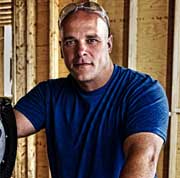When it comes to the upkeep of your home, proper maintenance of your plumbing system is crucial. Ignoring plumbing maintenance can lead to costly repairs, inconveniences, and potential water damage. However, with a little knowledge and proactive measures, you can avoid such hassles and keep your plumbing in optimal condition.
From drain cleaning to leak detection, taking care of your plumbing system doesn’t have to be a daunting task. By ensuring routine plumbing maintenance and hiring professionals in drain cleaning Omaha, you can prevent major plumbing issues and enjoy a well-maintained plumbing system in your home.
1. Regularly inspect and clean your drains
Clogged drains are one of the most common plumbing problems, and they can lead to water backup, unpleasant odors, and even damage to your pipes. Regularly inspecting and cleaning your drains is a preventive measure that can save you from major headaches.
Start by removing any visible debris from the drain cover or stopper. Then, use a plunger to loosen any clogs in the drain. For more stubborn clogs, pour a mixture of baking soda and vinegar down the drain. This combination can help dissolve grease, soap scum, and other buildup in the pipes.
To maintain clean drains, it’s a good practice to pour boiling water down the drain once a week. Hot water helps flush away residual debris and clear the pipes. Additionally, consider using drain screens or strainers to catch hair, food particles, and other solids before they enter the drain. This simple preventive measure can significantly reduce the risk of clogs.
2. Check for leaks and repair them promptly
Even a small leak can waste a significant amount of water and lead to water damage if left unaddressed. Regularly checking for leaks and repairing them promptly is crucial for the health of your plumbing system.
Inspect all visible pipes for signs of leaks, such as water stains, drips, or puddles. Pay close attention to areas under sinks, behind toilets, and around water heaters. If you notice any signs of a leak, it’s important to act quickly.
You can fix minor leaks with a pipe wrench or plumber’s tape. For more complex leaks, it’s best to call a professional plumber to ensure the issue is resolved correctly. Remember that addressing leaks early can save you money on your water bill and prevent costly water damage repairs in the future.
3. Maintain your water heater
Your water heater plays a crucial role in delivering hot water. To ensure it continues to function efficiently and reliably, regular maintenance is necessary. One important maintenance task is flushing the water heater to remove sediment buildup. Minerals and sediment can build up at the tank’s bottom, affecting the heater’s performance.
To flush the water heater, you can turn off the gas supply or power, then connect a hose to the drain valve, and allow the water to drain into a suitable location. Be cautious, as the water may be hot. Once the tank is empty, close the drain valve and refill the tank before restoring power or gas.
In addition to flushing, it’s a good idea to test the pressure relief valve on your water heater annually. Lift the valve’s tab to allow some water to be released. If the valve doesn’t release water or fully close after testing, it may need to be replaced. Keeping the area around the water heater clear of clutter and ensuring proper ventilation is also essential for its safety and efficiency.
Endnote
By following these three plumbing maintenance tips, you can keep your plumbing system in excellent condition and avoid major issues. Enlist the services of a plumber if you encounter complex plumbing issues. Taking proactive measures now will save you time, money, and headaches in the future, allowing you to enjoy a smoothly running plumbing system in your home.










